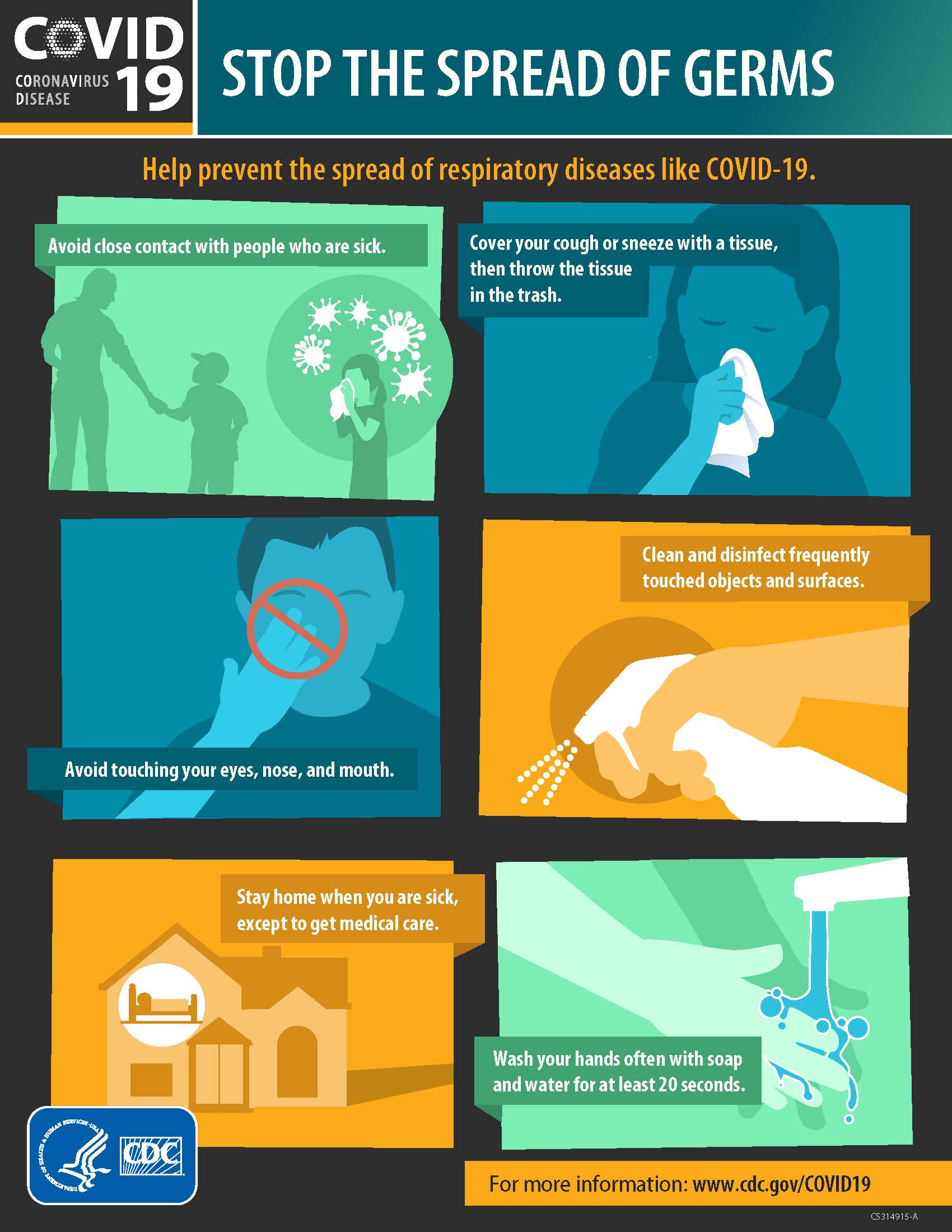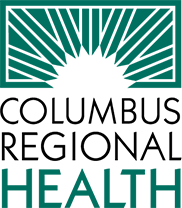Steps to Prevent Illness
There is currently no vaccine to prevent coronavirus disease 2019 (COVID-19).
The best way to prevent illness is to avoid being exposed to the virus.
The virus is thought to spread mainly from person-to-person.
- Between people who are in close contact with one another (within about 6 feet).
- Through respiratory droplets produced when an infected person coughs or
sneezes.These droplets can land in the mouths or noses of people who are nearby
or possibly be inhaled into the lungs.
Older adults and people who have severe underlying chronic medical conditions like heart or lung disease or diabetes seem to be at higher risk for developing more serious complications from COVID-19 illness. Please consult with your health care provider about additional steps you may be able to take to protect yourself.
Take steps to protect yourself
Clean your hands often
- Wash your hands often with soap and water for at least 20 seconds especially after
you have been in a public place, or after blowing your nose, coughing, or sneezing.
- If soap and water are not readily available, use a hand sanitizer that contains at
least 60% alcohol. Cover all surfaces of your hands and rub them together until
they feel dry.
- Avoid touching your eyes, nose, and mouth with unwashed hands.
Avoid close contact
- Avoid close contact with people who are sick
- Put distance between yourself and other people if COVID-19 is spreading in your
community. This is especially important for people who are at higher risk of getting
very sick.
Take steps to protect others
Stay home if you’re sick
- Stay home if you are sick, except to get medical care.
Cover coughs and sneezes
- Cover your mouth and nose with a tissue when you cough or sneeze or use the
inside of your elbow.
- Throw used tissues in the trash.
- Immediately wash your hands with soap and water for at least 20 seconds. If soap and water are not readily available, clean your hands with a hand sanitizer that
contains at least 60% alcohol.
Wear a facemask if you are sick
- If you are sick: You should wear a facemask when you are around other people
(e.g., sharing a room or vehicle) and before you enter a healthcare provider's office.
- If you are not able to wear a facemask (for example, because it causes trouble
breathing), then you should do your best to cover your coughs and sneezes, and people who are caring for you should wear a facemask if they enter your room.
- If you are NOT sick: You do not need to wear a facemask unless you are caring for
someone who is sick (and they are not able to wear a facemask). Facemasks may
be in short supply and they should be saved for caregivers.
Clean and disinfect
- Clean AND disinfect frequently touched surfaces daily. This includes tables,
doorknobs, light switches, countertops, handles, desks, phones, keyboards,
toilets, faucets, and sinks.
- If surfaces are dirty, clean them: Use detergent or soap and water prior to
disinfection.
To disinfect:
Most common EPA-registered household disinfectants will work. Use disinfectants appropriate for the surface.
Options include:
Diluting your household bleach
To make a bleach solution, mix: 5 tablespoons (1/3 cup) bleach per gallon of water OR 4 teaspoons bleach per quart of water
Follow manufacturer’s instructions for application and proper ventilation. Check to ensure the product is not past its expiration date. Never mix household bleach with ammonia or any other cleanser. Unexpired household bleach will be effective against coronaviruses when properly diluted.
Alcohol solutions
Ensure solution has at least 70% alcohol.
Credit: Centers for Disease Control and Prevention
COVD-19: Stop the Spread of Germs

Centers for Disease Control
Credit: Centers for Disease Control


